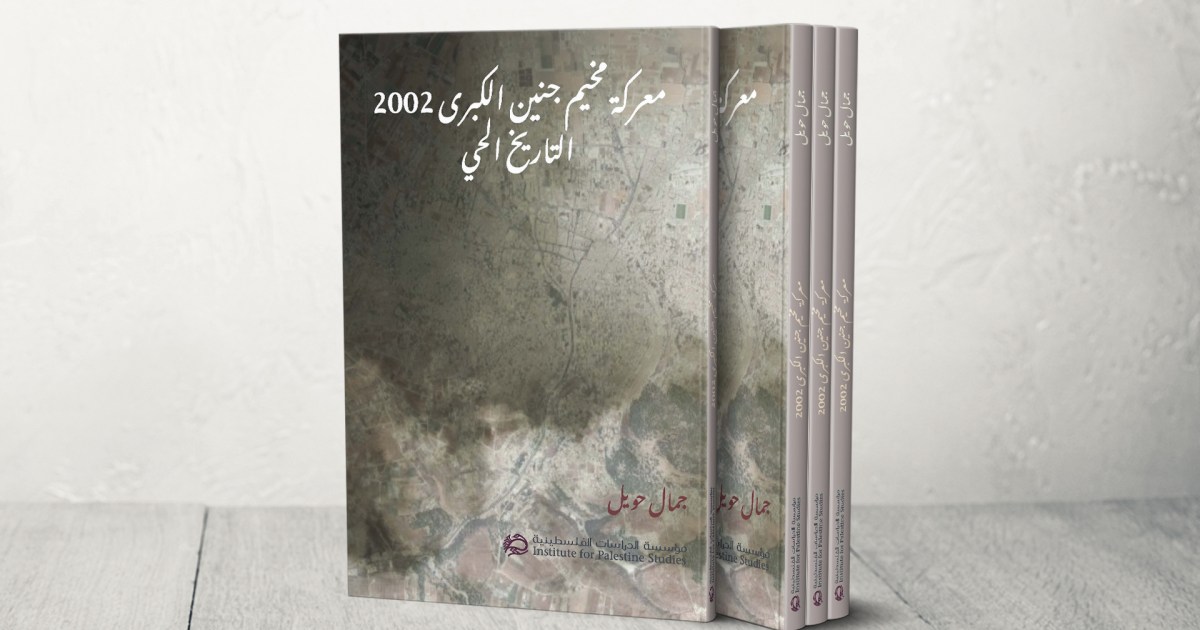Recently published by the Institute for Palestine Studies, the book "The Great Battle of Jenin Camp 2002: Living History", written by Jamal Huwail, and presented by the prisoner Marwan Barghouti.
The book ranges between objective, analytical and personal in search of the meaning of the battle of Jenin camp, the meaning of victory, and the meaning of defeat.
Accordingly, he seeks to pause for a moment to reflect closely on the battle, historically, spatially and spiritually, to answer the following questions: What did the victors do with victory?
What did the defeated lose?
And how were the Palestinians able to combine understanding the Jenin camp experience as an "epic of steadfastness and resistance" in terms of having won, and understanding it as a "massacre" in terms of the magnitude of losses and sacrifices?
Why did the exaggerators who did not take part in the battle go so far as to write about it from afar?
Why did the ascetics who ventured into it ascetic in writing about it?
The book derives its utmost importance from 3 basic elements: the first is that it is a closely related history of the event itself;
Given the particularity that the resistance has become the writer, and secondly, that it shows the extent of the deficiency in the process of drawing lessons from such experiences at the official and popular levels.
The third is that writing a detailed history, accompanied by a political, military and cultural analysis of the battle of Jenin camp, would enhance the culture of resistance under the continuous Zionist occupation, and in light of the conviction of some that the option of armed resistance has been exhausted.
The book, which came in 190 pages of medium volume, is divided into 5 main chapters;
The first chapter begins by addressing the Jenin camp in the literature, and then the second chapter places the Jenin camp in its historical, social, military and political Palestinian context.
The third chapter deals with "the process of preparing for the battle: the map and the field", and before the "Defensive Wall." The fourth chapter is entitled "Image and Legend: The Battle Diaries." The fifth and final chapter includes summaries of the battle of Jenin and critical notes.
The writer Gamal Hwail holds a PhD in International Relations from Cairo University, a MA in Contemporary Arab Studies from Birzeit University, and a BA in Economics and Political Science from the University of Jordan. He works as a professor of political science and international relations at the Arab American University in Jenin, and is a member of its board of trustees.
He was elected as a member of the Palestinian Legislative Council in 2006. He is a member of the Palestinian National Council and the Revolutionary Council of the "Fatah" movement. He was arrested several times.

